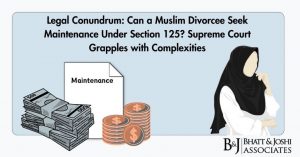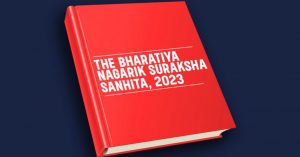Examination of Accused and the Role of Section 311 of CrPC
Background
The case revolves around the petitioner, who was facing trial for offences punishable under Sections 22(b), 29, and 27 of the Narcotics Drugs and Psychotropic Substances Act, 1985 (NDPS Act) and the power of Court to allow the summoning and examining of witness under Section 311 of CrPC.

Investigation and Charge Sheet
The petitioner was interrogated by IPS Officer Smt. Ankita Sharma, the then CSP of Police Station Azad Chowk, Raipur, and Police Inspector Ramakant Sahu. On 22.10.2020, the petitioner was found in possession of 40 grams of brown-sugar, leading to the registration of an F.I.R. The police subsequently filed a charge sheet against the petitioner, and all prosecution witnesses were examined.
Summoning of Witnesses
The petitioner moved an application under Section 311 of CrPC for summoning and examining Smt. Ankita Sharma, the then CSP of Azad Chowk Police Station, as a court witness. The application emphasised her active role in the investigation and the need for her examination to ensure a fair trial. The trial court rejected the application, holding that she had not played any role in the investigation.
Previous Legal Proceedings
The petitioner claimed to have been falsely implicated and brought from Talcher, District Angul, Odisha, to Raipur. A WPCR No. 686/2020 was filed under Article 226 of the Constitution of India for a CBI inquiry but was dismissed. A Criminal Appeal No. 634/2023 was also preferred before the Hon’ble Supreme Court.
Controversy in Question
The petitioner, Royden Harold Buthello, is an accused in a case being tried by the Special Court (NDPS Act), Raipur, for offences punishable under Sections 22(b), 29, and 27 of the NDPS Act. The petitioner is a businessman involved in Logistics, Transportation, and Renting out Vehicles for the last 35 years.
On 20.10.2020, five police officials from Raipur visited the petitioner at Hotel Green Park, where he was staying, and accompanied him to Raipur. He was interrogated by police officials and put in lockup. On 22.10.2020, an FIR was registered against him
The petitioner challenged the order dated 13.06.2023 passed by the Special Judge (NDPS Act), Raipur, in Special Case No. 87/2020, whereby an application moved by the petitioner under Section 311 of CrPC was rejected. The application sought to summon and examine Smt. Ankita Sharma, the then CSP of Police Station Azad Chowk, Raipur, as a witness.
The controversy revolves around the petitioner’s arrest, the nature of the charges, the application to summon a particular witness, and the consequent court’s decision to allow the examination of that witness.
Legal Issues Involved
Application of Section 311 of CrPC
The primary legal issue revolves around the application of Section 311 of CrPC, which empowers the court to summon and examine any person as a witness or re-examine a witness whose evidence has already been recorded. The issue was whether the court should allow the application under Section 311 of CrPC to summon and examine Smt. Ankita Sharma, the then CSP of Azad Chowk Police Station, as a court witness.
Stage of Examination of Accused
Another legal issue pertains to the stage of examination of the accused under Section 313 of CrPC. The court examined the provision of Section 313 of CrPC, which provides for the examination of the accused, and the right of the accused to produce evidence to defend his case. The issue was whether the application under Section 311 of CrPC was moved at the appropriate stage.
Duty of the Court to Arrive at the Truth
The court also dealt with the legal issue concerning the duty of the court to arrive at the truth by all lawful means, including the examination of witnesses of its own accord. The court emphasised the object underlying Section 311 of CrPC, which ensures that there may not be a failure of justice due to the absence of valuable evidence or ambiguity in witness statements. The court’s discretion under this section must be exercised judiciously, and the determinative factor is whether it is essential to the just decision of the case.
Setting Aside of Impugned Order
The legal issue of setting aside the impugned order dated 13.06.2023 passed by the Special Judge (NDPS Act), Raipur, in Special Case No. 87/2020, was also addressed. The court considered whether the impugned order should be set aside and the application under Section 311 of CrPC allowed.
Arguments made by Applicant
Summoning of Witness
The petitioner’s counsel argued that the petitioner was interrogated by CSP Smt. Ankita Sharma, and she played an active role in the investigation of the case. They emphasised that the prosecution deliberately avoided mentioning her name as one of the prosecution witnesses, and her examination would bring the truth and ensure a fair trial.
Relevance of Section 311 of CrPC
The counsel argued that the application under Section 311 of CrPC was moved at the appropriate stage, as the provision allows the court to summon and examine any person as a witness at any stage of inquiry, trial, or other proceeding. They emphasised that the evidence should be essential to the just decision of the case, and the court has the power to summon any person if the conditions under Section 311 of CrPC are satisfied.
False Implication
The counsel submitted that the petitioner was falsely implicated in the case and was brought from Talcher, District Angul, Odisha, to Raipur, where the F.I.R. was registered against him. They referred to previous legal proceedings, including a WPCR filed under Article 226 of the Constitution of India for a CBI inquiry and a Criminal Appeal before the Hon’ble Supreme Court.
Rejection of Trial Court’s Order
The counsel challenged the trial court’s rejection of the application to summon Smt. Ankita Sharma as a witness, arguing that the evidence of the proposed witness would be just and necessary for a fair trial and a just decision of the case.
Setting Aside of Impugned Order
The prayer included a request to set aside the impugned order dated 13.06.2023 and to allow the witness, namely Smt. Ankita Sharma, to be called as a witness so that the petitioner may get the liberty to examine and elicit the truth even by cross-examination after the chief.
Reference to Supreme Court Judgment
The counsel referred to the judgement of the Hon’ble Supreme Court in the matter of Rajaram Prasad Yadav v. State of Bihar, to emphasize the principles to be borne in mind while dealing with an application under Section 311 of CrPC. They highlighted the need for the court to ensure that the judgement is not rendered on inconclusive facts and that the power under Section 311 of CrPC should be exercised to find out the truth or obtain proper proof.
Important Observations of the Court
The Hon’ble Court made several important observations in the judgement, which are quoted below:
- Observation on Section 311 of CrPC- The Court elaborated on the principles governing the exercise of power under Section 311 of CrPC
“The exercise of the said power cannot be dubbed as filling in a lacuna in a prosecution case, unless the facts and circumstances of the case make it apparent that the exercise of power by the Court would result in causing serious prejudice to the accused, resulting in miscarriage of justice. The wide discretionary power should be exercised judiciously and not arbitrarily. The Court must satisfy itself that it was in every respect essential to examine such a witness or to recall him for further examination in order to arrive at a just decision of the case. The object of section 311, CrPC, simultaneously imposes a duty on the Court to determine the truth and to render a just decision.” (Page 12, Para 14)
- Observation on Examination of Accused – The Court discussed the provision of Section 313 of CrPC
“After the evidence of the prosecution is over before the Court, the statement of the accused is recorded and this right is confirmed upon an accused according to the provision of Section 313 of CrPC. After recording of the statement under Section 313 of CrPC, the stage of defence evidence of an accused starts. The courts must grant the accused an opportunity to produce any evidence to defend his case. This defence can be oral and documented evidence, this includes any witness that the defendant might be bound to produce before the Court. However, the burden of proof lies upon the prosecution; therefore, it becomes obligatory on the part of the accused to rebut the evidence adduced by the prosecution against him. Therefore, it cannot be said that the application was not moved by the petitioner under Section 311 of CrPC. at the appropriate stage.” (Page 10, Para 11)
- Final Order of the Court – The Court concluded by allowing the application under Section 311 of CrPC:
“As a result, following the principles as laid down by the Hon’ble Supreme Court in the above-referred judgments, I am inclined to allow the application moved by the petitioner under Section 311 of CrPC. Accordingly, it is ordered that the impugned order dated 13.06.2023 passed by the Special Judge, (NDPS) Raipur (C.G.) in Special Case No. 87/2020 is hereby set aside. The application under Section 311 of CrPC moved by the petitioner is allowed. The witness namely Smt. Ankita Sharma, the then CSP, Police Station Azad Chowk, Raipur is allowed to be called as a witness so that the petitioner may get the liberty to examine and elicit the truth even by cross-examination after the chief.” (Page 18, Para 19)
Important Provisions of Law
| Provision / Section of Law | What It Stands For |
| Section 311 of CrPC | Power to summon material witness, or examine a person present. It allows the court to summon any person as a witness, or examine any person in attendance, or recall and re-examine any person already examined, at any stage of inquiry, trial, or other proceeding. The section emphasizes that the evidence should be essential to the just decision of the case |
| Section 313 of CrPC | Power to examine the accused. This section provides for the examination of the accused to enable them personally to explain any circumstances appearing in the evidence against them. It also details the procedure and conditions for such examination |
| Section 138 of the Evidence Act | Referred to in conjunction with Section 311 of CrPC, this section deals with the order of examinations of witnesses in a trial |
| Sections 60, 64, and 91 of the Evidence Act, 1872 | These sections were referred to in the context of the best available evidence being brought before the court |
Conclusion
The Hon’ble High Court of Chhattisgarh allowed the application moved by the petitioner under Section 311 of the CrPC, thereby setting aside the impugned order dated 13.06.2023 passed by the Special Judge (NDPS Act), Raipur, in Special Case No. 87/2020. Thus, the Court permitted the examination of Smt. Ankita Sharma, the then CSP of Police Station Azad Chowk, Raipur, as a witness. The Court emphasized that the petitioner may get the liberty to examine and elicit the truth even by cross-examination after the chief.
The judgment underscored the principles governing the exercise of power under Section 311 of CrPC, emphasizing the duty of the Court to determine the truth and render a just decision. The Court’s decision was guided by the interest of justice and the necessity of ensuring a fair trial. The petition stood disposed of, marking the conclusion of the legal proceedings in this matter.
The judgment reflects a judicious exercise of discretionary power, with a focus on the principles of justice, fairness, and the rule of law.









